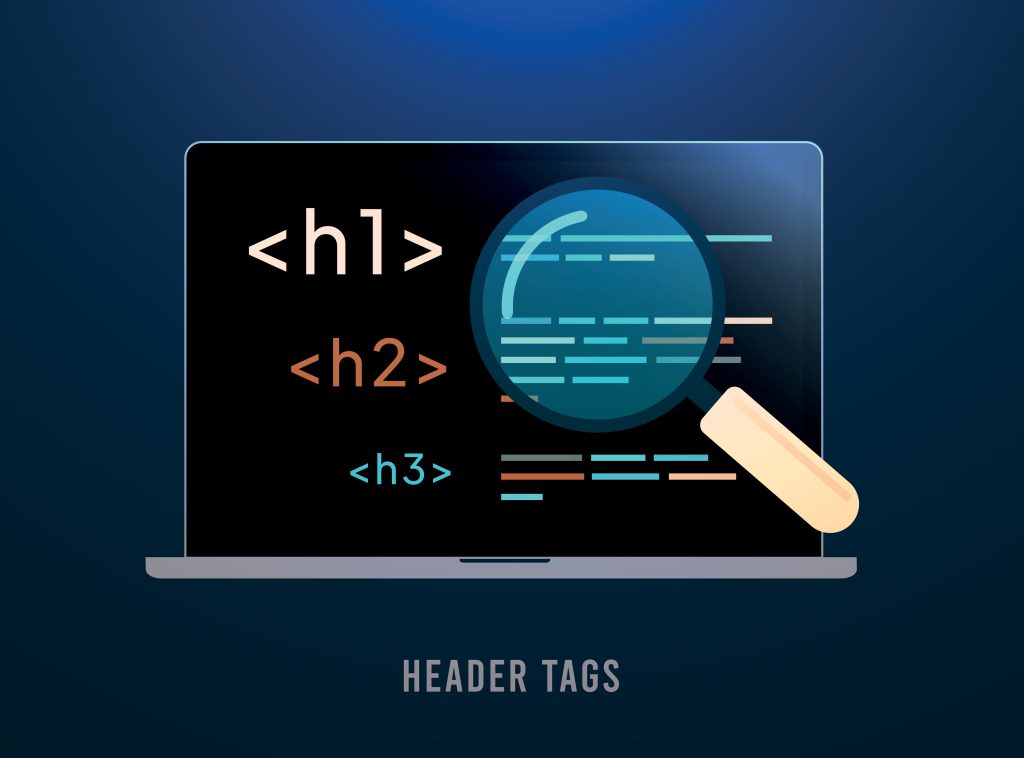Boosting SEO with Improved Header Tags
If you’re aiming to improve your website’s SEO, you’ve likely come across the significance of header tags. These small pieces of HTML code can significantly impact how search engines comprehend and prioritize your content. At Now Media Group, our SEO specialists can leverage header tags to bolster your SEO approach.
Ready to boost your search engine optimization efforts? Start using header tags strategically and see the difference! Speak to an SEO professional today by calling (858) 333-8950.
What Are Header Tags?
Header tags, such as H1, H2, H3, etc., are used to define the headings and subheadings within your content. They help create a hierarchy and structure, making it easier for both readers and search engines to navigate your page.
H1: The Main Event
Your H1 tag is the most important header on your page. It should clearly and concisely describe the main topic of your page. Think of it as the title of a book; it sets the stage for what’s to come. Typically, there should only be one H1 tag per page to maintain a clear focus.
H2: Breaking Down Sections
H2 tags are used to break your content into main sections. These tags help to organize your content logically and make it more readable. They also signal to search engines what the significant parts of your content are.
H3 and Beyond: Diving Deeper
H3, H4, and so on, are used for sub-sections within your H2 sections. They help further break down your content into manageable chunks. This hierarchical structure is great for readability and helps search engines understand the relationships between different parts of your content.
SEO Benefits of Using Header Tags
 Improved Readability and User Experience
Improved Readability and User Experience
A well-structured article is easier to read and navigate. When your content is easy to understand, users are more likely to stay on your page longer and engage with it. This can lead to lower bounce rates and higher dwell times, both of which are positive signals to search engines.
Better Keyword Optimization
Header tags offer prime real estate for keywords. Including your target keywords in your headers (naturally and contextually) can help search engines understand what your page is about. However, avoid keyword stuffing, as it can have the opposite effect.
Helps Search Engines Understand Your Content
Search engines use header tags to understand the hierarchy and structure of your content. By clearly defining sections and subsections, you help search engines index your page more effectively, improving your chances of ranking higher in search results.
Enhanced Crawling and Indexing
Search engines use bots to crawl and index your content. A well-organized structure with clear header tags makes it easier for these bots to understand and index your page efficiently. This can lead to better visibility in search results.
Best Practices for Using Header Tags
Use One H1 Tag Per Page
Your H1 tag should be unique and clearly describe the main topic of the page. It sets the stage for the content and should include your primary keyword.
Keep It Logical
Your header tags should follow a logical hierarchy. Start with an H1 tag for your main title, followed by H2 tags for major sections, and H3 tags for sub-sections within those. This logical flow helps both readers and search engines understand your content structure.
Use Keywords Wisely
Incorporate your primary and secondary keywords into your headers, but make sure they fit naturally. Forced keywords can disrupt the flow of your content and may be penalized by search engines.
Don’t Overuse Headers
While it’s important to use header tags, overdoing it can be counterproductive. Use them where they make sense and enhance the readability and structure of your content.
Consistency is Key
Consistency in your header usage across your website can help create a cohesive experience for your readers. It also helps search engines recognize patterns and understand your site’s structure better.
Common Mistakes to Avoid
With header tags, avoid these common mistakes to ensure the best optimization:
- Skipping Header Tags: Ignoring header tags can lead to a poorly structured page, making it difficult for both users and search engines to understand your content.
- Using Too Many H1 Tags: Multiple H1 tags can confuse search engines and dilute the importance of your main title. Stick to one H1 tag per page.
- Overloading with Keywords: Keyword stuffing in header tags can make your content appear spammy and harm your SEO efforts. Focus on natural, relevant keyword placement.
- Inconsistent Structure: A disorganized header structure can confuse readers and search engines. Ensure your headers follow a logical hierarchy.
Learn More about the Influence of Header Tags
A well-structured page not only pleases search engines but also provides a better experience for your readers. Take the time to craft your headers thoughtfully, and you’ll likely see a boost in your SEO efforts. If you’re ready to take your SEO to the next level, let our SEO connoisseurs start implementing strategic header tags today and watch your content soar! Contact Now Media Group by calling (858) 333-8950 for more information.
